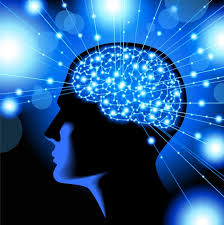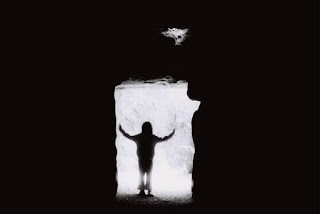The Illness WE Fear Most
I've been ignoring this. I think about it, but I hardly ever talk about it. Do you? IT has scared me in the past and I have ducked, turned and walked the other way when I hear the term. IT has to be, in my mind anyway, one of the most difficult illnesses throughout all of society and the stigma attached to it, while mildly improved through some campaigning, is in all accounts... still largely untouched. As I am not an expert, and simply write from personal observation, I welcome your comments and ideas and opinions. Public commentary raises awareness, grows to education and lands in empathy.
Don't run off now. Bare with this piece just for a minute. Be brave enough to embrace your personal assumptions. Let's learn something new today. You're just reading this, no one can see! No one will judge you. Have a little courage to think a little deeper about something you are inclined to turn your head to.
And to keep you from shifting your screen, I am going personal again here. My blog stats tell me you prefer first person! So, this chat starts with me. I am just one human, depending largely on life experience to grow and so are you. So, with nothing to hide, and in the name of awareness and having a voice, I reluctantly force myself to admit and share one of my weaknesses. This quick little rant addresses stigma in a fashion you will likely have experienced with some perspective, but sadly, there is little written outside news media events and devestating occurrence reporting, and social media only barely touches on awareness through poorly funded campaigns or disturbing reports on family tragedy. Why? Because of our lovely fear of fear. The stigma attached to a messy illness in the eyes of most. While opinion driven, here's what I've seen. Here's what I've learned, AND, most of all, here is what I am learning.
As I have shared once before, I spent a lifetime in blissful ignorance. Forty two years being somewhat aware, and accepting a surface knowledge of mental illness and the variety of diagnosis that fall under that umbrella. I didn't judge. I didn't really even notice that mental illness was a real big deal. I never thought much beyond a label, and that label would either send me running another direction, or on a good day, would allow me but a minute or two of reflection...period. And of all the mental illnesses, like most people, I ran quick and far from the personality disorders and any word dealing with schitzophrenia. Like most of us, I was conditioned by movies, and an older generation of associated stigma, and it worked. I was scared of the terms, the reference, and the people who I thought "wore scary masks", and all that time, I would prefer to pretend they/it never existed outside fiction. The strongest stigma association for me was with criminal behavior, aggressive hurtful intent and a puzzling disconnect of there being any real person inside a shell of a body. Thanks SOCIETY!
So, this changed albeit way too slowly. A lot changed. Over the past 25 years, my husband has worked as a nurse on a psychiatric floor and has passively spoke of the illness from the perspective of extreme need, serious support and intervention. I only casually listened. Also, over the years, I acquired a little "book knowledge" through Behaviour Science and Psychology education that interested me. And like most readings, we take from it select items that we have been previously primed to absorb. But nothing...nothing...nothing you read in the science of disorder and disease, prepares you for the humanity of it. The raw, dirty reality of it. In fact, I can point to some readings in my past that with current understanding, would seen to have enhanced stigma with outdated information.
Then, at age 42, came a time where I developed a potentially fatal illness, suicidal depression, that required hospitalization for many months. As devastating as this experience was, and while I had some significant delusional thought of my own thrown in there, I was well supported by family, friends, employer, nurses and doctors who well understood and accepted this illness as exactly that, and the related stigma attached was there but minimal. While hospitalized, I shared a room with a young woman who was severely ill with a subtype of schitzophrenia that removed her entirely from the world we all live in. She was constantly scared, defensive, exhausted and confused. I witnessed ongoing strategic and therapeutic interactions between staff and her illness. I remember conversations with her in the bed next to mine, and her fear was extreme as she was unable to process the intent of others. She was very young. Her family could only handle 10 minute once/week visits and they were heartbroken leaving each visit with reluctance. There was plenty more to her story but schitzophrenia was her life battle, unfairly assigned. She was lost. And I was told by staff that she had been lost for years. I spent 3 months with her. I remained distant, and quietly observed at first, slowly learning her emotions and watching her reactions. I got to know her patterns and struggles. I saw only slight glimpses of joy at communal dinner time as she sat off on her own, fighting her demons for enough time to eat and yet she never got through a single meal. Even in my own struggles, she opened my eyes like nothing has before. I saw her shell, and her person in conflict. I saw her soul, hiding deep inside, and her eyes...were dark and scared. I still knew little about the illness, but I sure saw the humanity, the anguish, the "unfairness" of life and the battles we are forced to face. I witnessed where stigma was born and identified my own weakness, embraced my fears and told myself that if I lived (sadly questioned at the time), I would not remain ignorant and would learn more.
And my own illness became focus. In no way do I wish to minimize the suffering or significant horrific impact of major depression, but with all the awareness around mood disorders and suicide, and emerging societal acceptance of these as a real illness, I had good support. Though hard to identify at the time, I can tell you that while a few of my people were a little afraid of my illness, most were well aware and knew of the potential outcomes. And, coming out of illness, I was encouraged by public awareness and education campaigns. While a lonely path to travel, scary and dark, hope was a dim light that still existed in my tunnel. Thanks to my circles, their awareness and SOCIETY, again.
I never did return to educate myself more on schitzophrenia. I only occasionally asked my husband for clarifying facts on personality and mood disorders in my pondering. It's certainly not in my face everyday with support memes or quotes or large scale awareness campaigns as is the case of depression and anxiety topics. In my quiet moments however, I think often of that young woman who I shared a room with and wonder about her life today. Recently, at my work place, I have been visited weekly by a young teen sibling group who express openly their own fears and stigma attached with a family member who suffers tremendously with a schitzophrenia illness, reigniting my own awareness and search for understanding the sub-types better. The family dynamics and difficulties are intense and the supports for children and youth who live with it are minimal. They have access to private counselling, however feel hidden and unsupported. Teens are delicately investing in their own identity and this road is most difficult when mental illness is deeply ingrained in their daily existence. They don't use the word "embarrassed", but it comes to my mind as they talk. The good news is however, they are learning to speak out and teach others. Caring for a family member as a child is an experience many of us can barely imagine. The realities are scary and because of the privacy and stigma, these stories are most often hidden, not getting the same attention and awareness that depression and anxiety related illnesses get. Behavior explained by an illness is tricky.
To add another dimension to my story, recently, my husband and I have been facing the reality that our own family member is perceived by some to have schitzophrenic tendencies. While this is not a current diagnosis, her symptoms as a young adult, using imaginative world conversations with imagined characters to escape and cope with real world interaction, visually mimic the illness society fears, and even in our own awareness, growing with it, understanding it and embracing it as part if who she is, scares us. The similarities are there and the need to remain vigilint in the emergence of new distinct patterns and intensities keep us on our toes for fear of what may come. The judgements, the stigma that may be attached to her as she talks to her imaginary friends and waves and laughs with them in isolation or in crowds, is hard for people to understand and accept. It is our families "normal" so we talk little about it, we ignore it. We try hard to condition her to a time and a place for her to express in a way that is socially acceptable, but it's often futile. Luckily, hers is usually (but not always) a happy place with a switch that can turn back to reality at will, but wow...it sure scares some people. The resemblance to similar mental illnesses scares us and we worry about people in public places fearing her, making her a target. The more intense fear of uneducated law enforcement during an interaction as she becomes an adult, her tendancy toward serious outburst, or potential misunderstanding makes her especially vulnerable. Soon, she will lose the protection of "cuteness" and "youth and society will change their reaction to her behavior, and we are preparing. Like many mental illnesses, awareness needs to reach further than depression and anxiety. A spectrum of mental activity should be respected. We do this through sharing, storytelling, faces and hearts to the stories, educating, awareness campaigns and, ummm, reading...blogs like this.
As a non mental-health professional with only observation and life experience to speak from, I have encountered a place where we fall. The curbs and pits of fear trip us. For some, our eyes are simply closed. Some of us, due to lack of connection and exposure, turn our heads in ignorance. Some of us run with fear. Some of us are simply not interested...until it hits you in the face through personal encounter. And sadly, when dealing with the messy, with fear of exploitation, protection of our most vulnerable, desire for privacy, fear of judgement and lack of education, the real voices of the other half of mental illness are way too silent.
This is a call to educate, learn and become aware of the humanity found in the illnesses we fear. I challenge you to learn something new, search, read and improve your awareness around the many subtypes of schitzophrenia and other mental illness such as the less known types of personality disorders. If you only click one of the links below, you will have just become a truly amazing person! Even a quick glance is worth the world for some.
250,000 Canadians/51 million worldwide diagnosed with a type of Schitzophrenia
http://www.schizophrenia.com/s
250,000 Canadians/51 million worldwide diagnosed with a type of Schitzophrenia
http://www.schizophrenia.com/s




